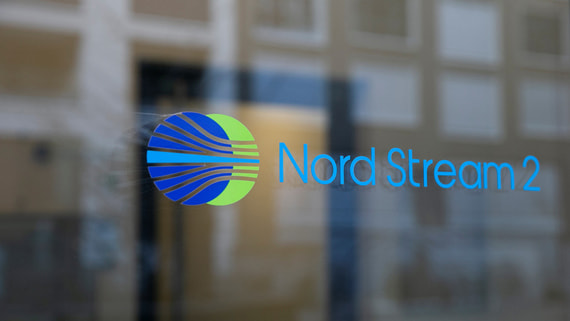A Polish court has finally canceled fines for Nord Stream 2 participants
[ad_1]

The Court of Appeal in Warsaw has finally overturned the decision of the Polish Office of Competition and Consumer Protection (Urzad ochrony konkurencji i konsumentow, UOKiK) to fine Gazprom 29 billion zlotys ($7.6 billion at the time of the decision, $6.8 billion at the current exchange rate) . The Polish regulator issued the fine following the results of an antimonopoly investigation into the Nord Stream 2 gas pipeline project. The reversal of the decision was reported on October 26 by the Polish publication Puls Biznesu.
The court confirmed the earlier decision of the Competition and Consumer Court (Sad ochrony konkurencji i konsumentów, SOKiK), which was appealed by UOKIK.
The court also confirmed the cancellation of fines against Gazprom’s former partners in Nord Stream 2 – French Engie, German Uniper, Austrian OMV, British-Dutch Shell and German Wintershall – totaling 234.2 million zlotys ($61.3 million). at the time of the decision, $55.3 million at current rates).
UOKiK spokeswoman Małgorzata Cieloch, quoted by the publication, said that the appeal court refrained from verbally justifying the decision, so the regulator is awaiting written reasons, after which it will decide on further legal steps.
The publication notes that UOKiK will have the right to file a cassation appeal with the Supreme Court only if the appellate court committed “significant formal violations” when making a decision.
Gazprom’s representative in court, Andrzej Ceglarski, said that the trial was substantive, and the decision on it “may have educational value.”
The antimonopoly proceedings were related to the creation in Switzerland of a joint venture (JV) Nord Stream 2 AG for the construction of the Nord Stream 2 gas pipeline with a capacity of 55 billion cubic meters along the bottom of the Baltic Sea. m per year to supply Russian gas to Europe. In September 2015 “Gazprom“, BASF (parent company of Wintershall), E.ON, Engie, OMV and Shell have signed a shareholder agreement to create the Nord Stream 2 gas pipeline system. It was assumed that “Gazprom» will have 50% in the joint venture, BASF, Engie, OMV, Shell, Uniper (a subsidiary of E.ON) – 10% each.
In the summer of 2016, the Polish regulator did not approve the creation of the Nord Stream 2 joint venture. As a result, “Gazprom” and its partners withdrew the application for approval of the creation of the enterprise. European energy companies financed the construction of the gas pipeline not through a joint venture, but by issuing loans to Gazprom-owned Nord Stream 2 AG.
In May 2018, UOKiK began an investigation into Gazprom, Shell, Engie, Wintershall, Uniper and OMV. The regulator noted that the activities of potential members of the consortium for the construction of Nord Stream 2 may be “an attempt to circumvent the lack of permission to create a joint venture.”
At the beginning of October 2020, UOKiK, based on the results of an antimonopoly investigation, fined “Gazprom“and Gazprom’s partners in the project. In accordance with the UOKiK decision, the companies were also required to terminate the financing agreements for Nord Stream 2 within 30 days. Gazprom and European companies appealed this in court.
In November 2022, SOKiK canceled the fines imposed by the regulator, but the antimonopoly authority filed an appeal against this decision.
The construction of Nord Stream 2 was completed in September 2021. But due to anti-Russian sanctions, the pipeline never started operating, although it was already filled with gas and was under pressure, and “Gazprom“was technically ready to start pumping. On September 26, 2022, one of the two lines of Nord Stream 2, as well as both lines of Nord Stream 1, were damaged as a result of sabotage in the waters of Denmark and Sweden.
Leading analyst of the National Energy Security Fund, Igor Yushkov, believes that UOKiK’s position was initially “extremely weak”, as European companies abandoned the idea of creating a joint venture and purchasing shares of Nord Stream 2 AG.
Managing partner of the legal company Enterprise Legal Solutions Yuri Fedyukin also draws attention to the fact that “Gazprom” and his partners could not pay fines until the court decision. But if UOKiK had won the trial, the lawyer continues, the proceedings could have gone beyond the Polish judicial system – then the companies could have appealed it at the level of the European Union (EU).
He adds that the Polish antimonopoly regulator most likely has no “working” arguments left, and Nord Stream 2 is not functioning and “is not of interest to the geopolitical agenda of the Polish authorities.” “The uncertainty and lengthy proceedings led the Polish judicial authorities to a reasonable and, in my opinion, the only solution to this issue,” says Fedyukin.
According to Yushkov, if the case were brought to the EU level, not only the bias of UOKiK, acting in the interests of local politicians, but also of the Polish courts would become obvious.
Advisor to the director of the Russian Institute for Strategic Studies, Dmitry Bunevich, notes that the judicial system in Poland is “relatively independent,” despite “the reduction of democratic rights and freedoms by the Law and Justice party government in recent years.” After the last parliamentary elections, there is a high probability of the opposition creating a government. Therefore, according to him, the Polish judicial system made a decision that seems correct to it. The decision plays into the hands of Gazprom’s European partners, who will not pay fines, but it is unlikely that the court was guided by this, the expert adds.
[ad_2]
Source link





